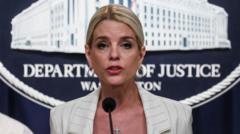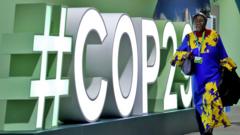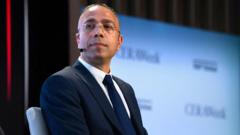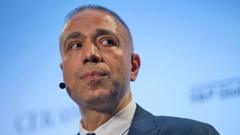The appointment marks a significant milestone for the Olympic movement as Coventry faces urgent challenges ahead.
Kirsty Coventry Makes History as First Female IOC President

Kirsty Coventry Makes History as First Female IOC President
New Leader Tackles Key Issues Including Transgender Rights and Climate Crisis
In a historic election held on March 20, 2025, Kirsty Coventry was appointed as the 10th president of the International Olympic Committee (IOC), becoming both the first woman and the first African to hold this prestigious position. The election, reminiscent of the excitement seen in a papal conclave, concluded with a surprising first-round victory that left onlookers in awe.
Coventry’s win thrusts her into the forefront of global sports leadership, a role that necessitates a keen blend of diplomacy, financial insight, and management expertise, alongside a deep understanding of athletics. The IOC presides over the planning and execution of the Olympic Games, which occur biannually and generate substantial economic impact.
Taking over from Thomas Bach, the Germany-based former fencing champion who navigated a tumultuous 12-year term, Coventry inherits a multitude of pressing matters. Bach’s presidency was marred by scandals such as Russia’s extensive state-sponsored doping program and the financial dilemmas faced by host cities. Ongoing global crises, including the impact of the COVID-19 pandemic which delayed the Tokyo 2020 Games, have also necessitated a reevaluation of the Olympic model.
As attention turns to the next Summer Olympics slated for Los Angeles in 2028, Coventry must address many immediate challenges. A major topic on her agenda will be the rights of transgender athletes, as well as how to combat the effects of climate change on the Olympic movement.
“The new president will be confronted with a unique set of challenges,” noted Michael Payne, a former IOC marketing director, emphasizing the disparities in issues compared to previous administrations. Coventry's presidency marks a pivotal moment for the IOC, potentially reshaping its legacy in a rapidly evolving global landscape.






















